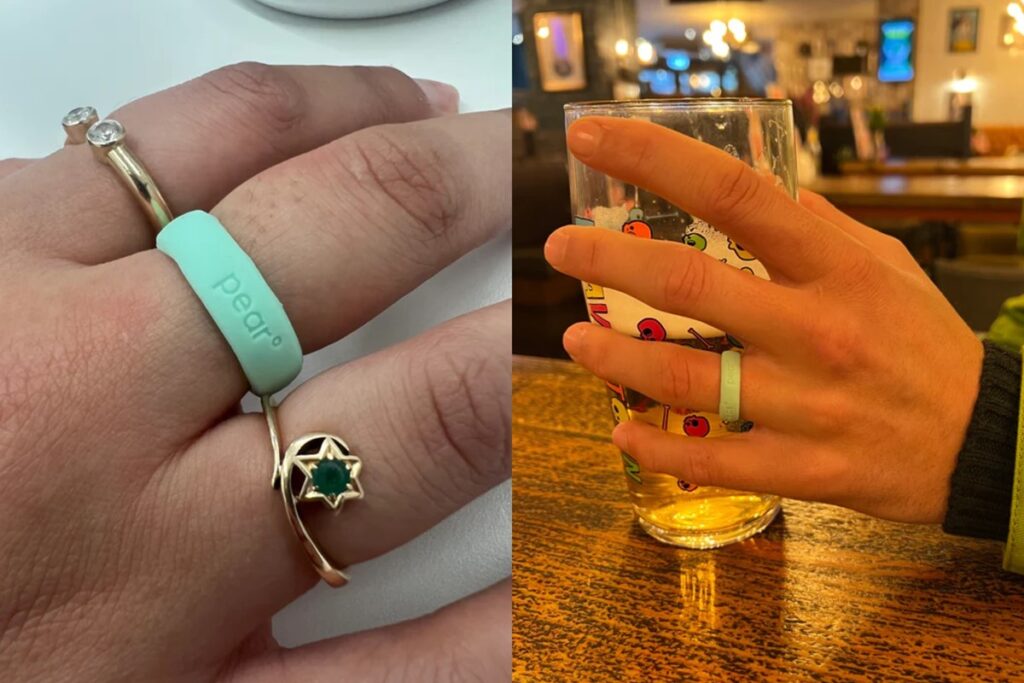
Dating apps once promised to make it easier to meet people and spark connections. But after a decade dominated by swipes, Gen Z is starting to step away. In 2023, 9 out of 10 young people distanced themselves from dating apps, according to data from Savanna. In Brazil, Tinder’s monthly active users dropped by 8% in 2024, while Bumble saw a 24% increase—but its user base is still ten times smaller.
The reason? A growing sense of exhaustion, superficiality, and lack of genuine connection. Conversations that go nowhere, constant ghosting, and a romantic market that feels more like a people marketplace than a space for meaningful exchanges.
As the numbers decline, a quiet movement is gaining traction. Brands like Pear Ring and Inner Circle are offering more human—and surprisingly creative—alternatives.
Pear Ring encourages singles to wear a subtle green ring that signals they’re open to meeting someone. Inner Circle, a European dating app, introduced blue socks for those looking to connect during runs, workouts, or group walks.
The logic is simple: what if we went back to meeting people in real life—but with small, recognizable signals to help break the ice?
These initiatives didn’t come out of nowhere. According to research by Inner Circle:
89% of members said they’d like to identify other singles during physical activities.
3 out of 4 singles prefer to meet someone in person.
But 61% say they’re afraid of rejection when approaching someone face-to-face.
The data is telling: the desire to get off the screen is real, but the emotional block is still strong. The screen protects—but it also limits.

Apps have made social life easier for many, but they have also created a new type of frustration: an overload of options that leads nowhere. In the comfort of gamification, many end up caught in cycles of validation, dopamine, and anxiety—not necessarily in a relationship. “Apps reduce the pain of rejection, but they turn relationships into a game,” summarizes the Inner Circle study. In other words, we’ve exchanged risk for entertainment—and intimacy for the algorithm.
A statement on the Pear website says: “If 1.2 billion singles around the world wore a small green ring on their finger to show they are single, we wouldn’t need dating apps. Real-life connection is the mission.”
Movements like Pear and Inner Circle aim to foster genuine connections—away from screens and the fear of rejection. They offer a more authentic way to start conversations and face real-world vulnerability without hiding behind apps.
With growing disillusionment around digital dating and a lack of meaningful bonds, maybe it’s time to rethink how we connect. A social experiment might just be the key to rediscovering the joy of flirting—and building genuine connections—in real life.
Will it catch on? Only time will tell.